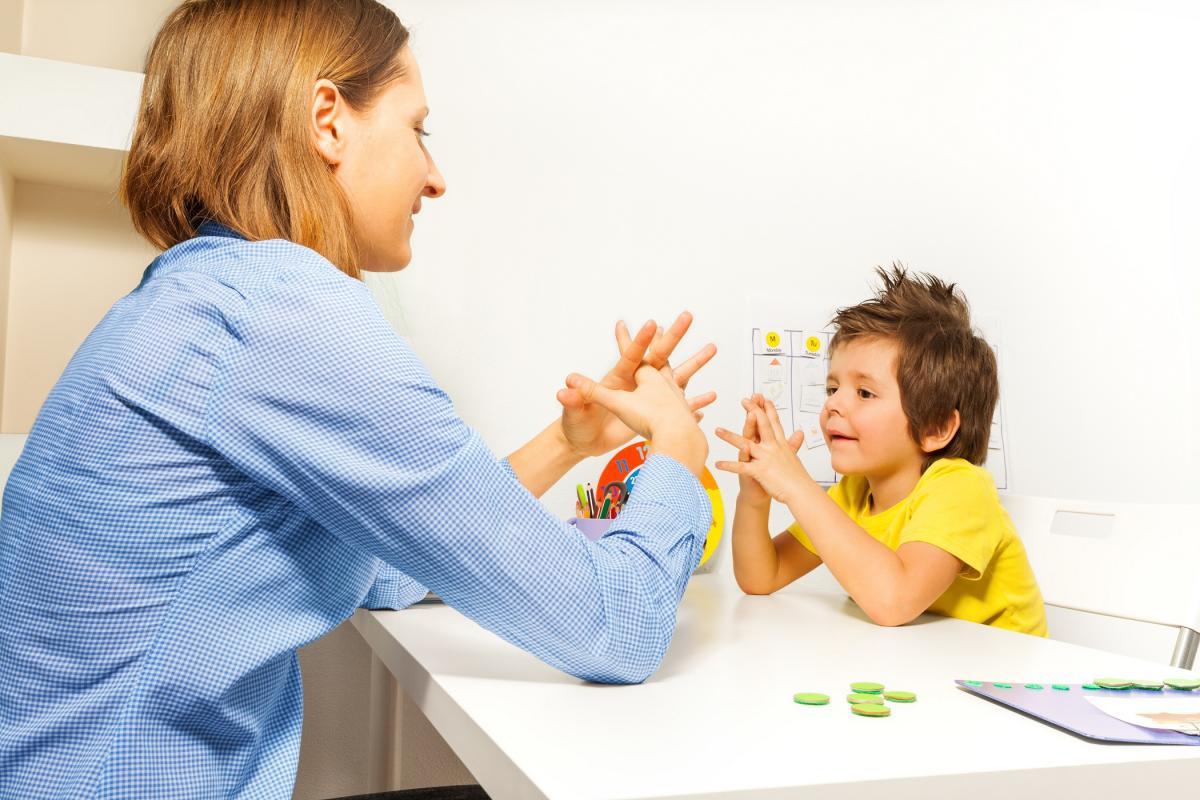
Understanding the Autism Spectrum
Autism spectrum disorder, or ASD, is a developmental disorder that presents symptoms in a child’s first two years of life. People with Autism are often stigmatized because of the way they typically behave, react, and communicate. In learning more about autism, we can gain a better understanding and stop the stigma surrounding this disorder.
What Is Autism Spectrum Disorder?
Autism spectrum disorder is characterized as a developmental disorder because symptoms typically appear in the developmental stage of life. The “spectrum” in the disorder’s name refers to the many variations and numbers of symptoms that people with autism can experience. As well, ASD occurs across all economic, racial, and ethnic groups.
Those with ASD typically exhibit repetitive behaviors, have difficulty interacting and communicating with other people, and experience challenges with functioning properly in various areas of life such as work and school.
The exact cause of the disorder is unknown; however, research revealed that the development of the disease involves the way in which genes interact with environmental influences. Some risk factors for developing ASD include having older parents, very low birth weight, a sibling with the disorder, and pre-existing genetic conditions like Rett syndrome.
Early Signs and Symptoms
There are several autism symptoms which can be observed in infants between six and twelve months of age. It’s important to note that a child having one of the signs doesn’t mean they have autism, but if they have a number of these symptoms, they should get an assessment which can result in early diagnosis and treatment.
Lack of Social Anticipation
“Social anticipation” refers to a child’s anticipatory reactions to being picked up or being involved in forms of play. A child without autism may raise their arms when anticipating being picked up. They may also cry or laugh in anticipation when a traditional game like peek-a-boo is being played. Children with autism will not express this type of anticipation.
No Response to Their Name or Eye Contact
Typically, infants are readily responding to their name when they reach the age of nine months old, but infants with autism do not. Autistic infants also do not exhibit any interest in the faces of their family members, and therefore will typically not make eye contact.
Absence of Social Smiling and Babbling
Another potential sign of autism in infants is a lack of social smiling or smiling back when you smile. Typically, infants as young as three months will exhibit this reflex which can be tested by first making a neutral face at the infant, and then smiling broadly to gauge their reaction.
Unlike neurologically typical infants who babble, those with autism typically are slow to verbalize or may not verbalize at all. They may also cease to verbalize suddenly and unexpectedly.
Fixation and Poor Tracking
Fixations on unusual objects such as the floor or ceiling, toy parts, or fans are all typical with older autistic babies. They will also exhibit difficulty with visually tracking objects, i.e., an autistic infant will not be able to easily follow a brightly colored toy as it is moved slowly back and forth in front of them. Instead, they will typically disengage quickly after seeming to lose interest.
Signs of Autism in Children
As children get older, the signs of autism become more definitive. Difficulty with writing, talking, reading, and understanding become evident. ASD-affected children can face challenges with following directions, engaging in conversation, pointing or waving, and the use and understanding of words.
These children may speak in a singing or robotic manner, repeat previously heard words, and act out instead of voicing their wants or needs.
Eating Preferences
Children with ASD can exhibit very specific food preferences. They may refuse to try new foods or only eat foods with a certain texture. Typically, these children prefer to consume the same foods, regardless of the mealtime. For example, they may prefer to eat breakfast cereal for dinner.
Common Behavior Patterns

It can be a challenge for children with the disorder to be interested in more than a few items or activities. They may stare at a particular toy or speak about only one topic. In addition, children with ASD typically have difficulty navigating changes to their normal routine.
They can also create their own routines, such as always needing to watch a movie in its entirety, including previews and credits. While these routines may seem unusual or unnecessary, they are comforting to the autistic child.
Certain sounds may upset them, and they may be observed spinning, rocking, staring, or flapping their hands. They may prefer to play alone in school, avoid physical contact, and experience difficulty expressing their feelings and understanding the feelings of others. In play, they may be very organized, lining up their playthings and becoming upset when even minor changes are made.
How Is Autism Spectrum Disorder Diagnosed?
While no medical test exists to confirm or rule out the presence of autism, the observation of an autism specialist can be incredibly effective. Child psychiatrists, developmental-behavioral pediatricians, and psychologists are all qualified to diagnose ASD. These professionals will observe both the child’s verbal and nonverbal communications and compare them to other children in their age group.
They also come upon their diagnosis via interviews with the child, their parents, and others who provide care. The child’s interview with the professional will include play-based testing, which can provide many clues as to whether a child may have the disorder.

How Is ASD Treated?
Following diagnosis, a range of treatments may be applied. Which treatments a child undergoes is completely dependent on their individual symptoms. No one autism spectrum disorder treatment will be effective for every child.
However, treatment as soon as possible following diagnosis is incredibly important, as the earlier a child receives treatment, the better. Receiving treatment early on will help them learn new skills by decreasing their difficulties and allowing them to capitalize on their strengths.
Treatment is available in four main categories: Complementary and natural, dietary, medication and behavior, and communication.
Infants who receive early intervention may receive assistance with interaction, walking, and talking. Children may undergo music, physical, sensory integration, or other therapy for autism. Medication is used for the purpose of treating symptoms associated with autism spectrum disorder, such as depression, anxiety, and inability to focus.
Finding Help
The recommendation from the American Academy of Pediatrics is that children age three and under should be screened for developmental disorders. Any parent with a concern about their infant or toddler’s development is strongly encouraged to speak with their Primary Care Provider. If the provider expresses concern following an examination, they may refer you to a child psychologist or neurologist, developmental pediatrician, or another specialist.
In the United States, children three years of age or younger suspected of having ASD or another developmental disorder can be evaluated at no cost. Therefore, it’s important to contact the right departments for your state. If your child is under three, you should contact your state’s early intervention system.
If your child is three years or older, your local public school or school board can refer you to a specialist for an evaluation. Your child does not have to be enrolled in the school in order to have this request fulfilled.
The Early Childhood Technical Assistance Center offers contact information for each state’s Department of Education if you are unsure who to speak to.
Finally, it’s just as important to seek help for yourself. An autism support group can offer encouragement and an opportunity to share your experiences and learn from the experiences of others.
Crystal Run Healthcare is dedicated to optimizing your child’s mental and physical health. Our primary care specialties use an integrated and multi-disciplinary approach while working with your child’s other doctors and specialists to provide comprehensive care. For more information about an evaluation for your child, call 845-703-6999.

 Optum Radiology at Crystal Run Healthcare
Optum Radiology at Crystal Run Healthcare Same and next-day pediatric appointments
Same and next-day pediatric appointments